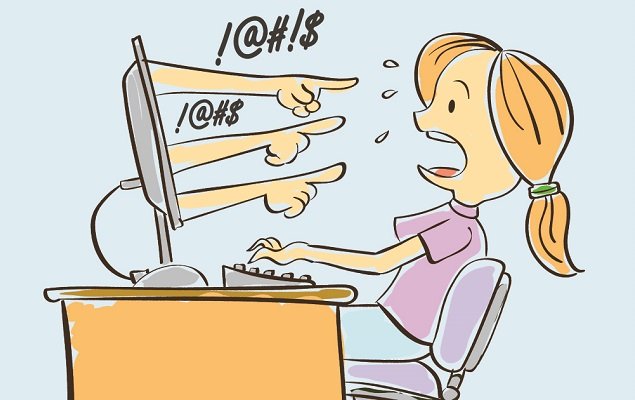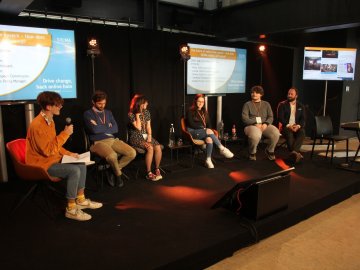Every month, we focus on a different dimension of the online hate speech phenomenon. These monthly focuses allow to foster a better understanding of how hate speech affects people, how we can respond to it and how we can affect positive change at a wider societal level.
After March's focus on the reasons why people spread hate online, this month we will delve into the consequences of online hate speech. Hateful messages do not only affect the individual(s) they are targeted to, there may also have adverse side-effects for the people witnessing online hate and for society as a whole.
From individual effects on wellbeing to hate crime
According to a research carried out by the SELMA project, online hate speech may cause direct and indirect effects on individuals' psychological wellbeing, on the short and long term. "Victims of online hate speech may show low self-esteem; they may feel lonely or isolated, or suffer from sleeping disorders, increased anxiety and feelings of fear and insecurity; their human dignity might be violated, no longer seeing themselves as good and appropriate, in accordance with socio-cultural norms." Not all the victims are affected in the same way. The effects depend on a range of different factors, such as past experiences, psychological and physical strength, or the available sources of support.
Online hate speech also has a wider societal cost. It may lead to the normalisation of discrimination, intolerance and hateful attitudes and behaviours, while creating a climate of fear and polarisation in the society. The research report highlights that young people often adopt a laissez-faire attitude towards hateful messages online; they may see them as a joke, thereby minimising their impact and normalising them. This carries risk for young people in particular, because they tend to imitate roles and behaviours they see in their environment.
"In its most aggressive form, hate speech may encourage – and therefore lead to – abusive, harassing or insulting conduct, including physical violence. When hate speech takes the form of conduct that is in itself a criminal offence, it may be referred to as hate crime," adds the research report "Hacking Online Hate: Building an Evidence Base for Educators."
SELMA in action
In order to gain a better understanding of the consequences of online hate speech, two articles will be published on this website in the following days.
The first one is a reflection on the consequences of online hate speech from the perspective of young people. This article will collect some of the answers provided in the focus groups that the SELMA project partners carried out with teenagers as part of the SELMA research programme.
The second article looks at the most extreme consequences of online hate speech. More specifically, it explains the correlation between anti-refugee rhetoric on social media and hate attacks, based on data from Germany. The Christchurch mosque shootings carried out by a right-wing extremist on 15 March 2019 in New Zealand are a recent example of how hate rhetoric can lead to hate crime. This highlights the importance of tackling hate speech at the root, through education and critical thinking, to avoid more life-threatening forms of violence.
In addition to the articles, we will publish three activities to work on the consequences of online hate speech with young people aged 11-16. These activities will allow teachers, and educators in general, to discuss with their students the consequences of online hate speech on a personal level, the consequences of the language they use, and the group identification processes that take place in society.
These activities are part of the SELMA Toolkit, a set of principles, methods and activities that will enable educators and professionals to work on online hate speech with 11- to 16-year-old teenagers. The Toolkit will be available on this website in spring. In order to allow educators to start working with young people already, we will publish a preview of an activity related to this month's focus, as we did last month with two activities exploring why people hate online.
Meanwhile, we invite you to join the discussion on the consequences of hate speech on social media – be sure to keep an eye on our Twitter #SELMA_eu hashtag, while following us on Facebook.






